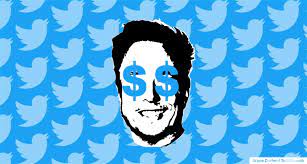Twitter has expanded its creator monetisation programme to include a percentage of the ad revenue that it generates from advertising appearing in the replies to their posts.
This was previously not the case. It has been confirmed by the corporation that this measure is part of its endeavour to assist users in further monetizing their time spent using the app.
“We’re rolling out the program more broadly later this month, and all eligible creators will be able to apply,” Twitter said.
The business claims that the only people who qualify as qualified creators are subscribers of Twitter Blue or verified organisations, users who have averaged more than 5 million impressions per month over the course of the preceding three months, and users who have successfully passed the human review for the Creator Monetization Standards.
Read also: Twitter launches DM video, audio calls for users
What the CEO of Twitter is saying
According to Elon Musk, CEO of Twitter, the entire amount that will be paid out will be $5 million, which will be the combined total beginning in February and continuing ahead. In addition to that, he mentioned that payments would be sent to all qualified creators using Stripe, an online payment platform.
In response to this concept, a number of authors have expressed their belief that the payments are substantial. Brian Krassenstein, who has more than 750,000 people following him on Twitter, recently tweeted that he has already received his revenue share and attached a screenshot to support his claim. According to a source, content creators such as @raptalksk and @bennyjohnson, who were awarded $2,236 and $9,546, respectively, have also been paid for their work.
Following the debut of the Creator Ads Revenue Sharing Programme, it is only logical that artists will want to offer incentives to encourage people to respond to their tweets. The best-case scenario would be if we could start a conversation. This point was articulated particularly eloquently by Farzad Mesbahi, a Twitter personality, who responded to the announcement of the launch of ad income with the following:
“The more haters you have in your replies the more money you’ll make on Twitter.” Elon Musk replied in a tweet, “Poetic justice.”
Twitter prohibits sexual content
However, according to Twitter’s criteria for selling material, sexual content is not permitted to be commercialized.
This is the case despite the fact that the app has a history of having a high tolerance level for pornographic content. Twitter has made it abundantly clear that it disapproves of any and all pyramid schemes and other schemes involving getting rich quick.
Additionally, it does not monetize criminal conduct, gambling, illegal substances or alcohol, nor does it promote violent behaviour. In addition, content creators who try to make money off of copyrighted material that they do not own in order to qualify for this advertisements revenue split would be disqualified.
Twitter at the centre of attention
Over the past few weeks, Twitter has been the site of a lot of activity. It began by coming under pressure from its employees, who launched a lawsuit against the company when it failed to live up to its commitment to pay 2022 bonuses. As a result, the corporation began to feel the heat from its employees.
Former workers have sued the corporation for breach of contract for failing to live up to its promise to provide severance packages of up to $500 million to staff members who lost their jobs as a direct result of his purchase of the company. In addition, Twitter found itself in a sticky situation when it refused to pay its Boulder landlord the rent for three consecutive months.
Its troubles were not only on the operational front, however, as it restricted its users’ ability to access specific tweets without providing them with any prior warning. This left users wondering what was going to happen next. It is interesting to note that Musk gave information indicating that the views would be boosted to a particular level for a variety of user groups.
Most recently, the social media app threatened legal action against Meta, accusing its competitor of hiring away former employees in order to establish a “copycat” platform known as the Threads app. In addition to this, Elon has initiated legal action against the law firm of Wachtell, Lipton, Rosen & Katz in an effort to reclaim the majority of the $90 million fee that Twitter paid them for defeating his attempt to back out of his $44 billion acquisition of the social media platform. This complaint was filed on Elon’s behalf.
It is plain to see that the corporation is putting more effort into luring people and maintaining their participation in the service. Not only does the new revenue-sharing tool provide creators with an additional incentive to use the platform, but it also underlines Twitter’s dedication to promoting independent voices. This is another step in the direction that we are moving towards. In general, this most recent introduction is beneficial not only to the corporation but also to its customers.




